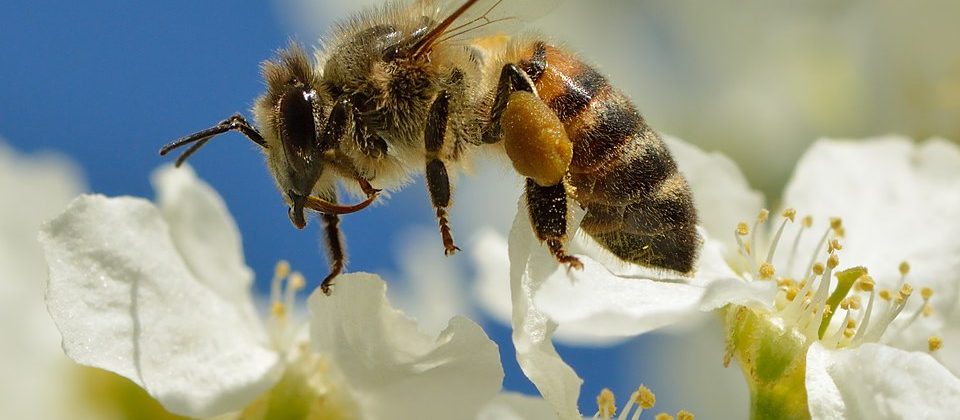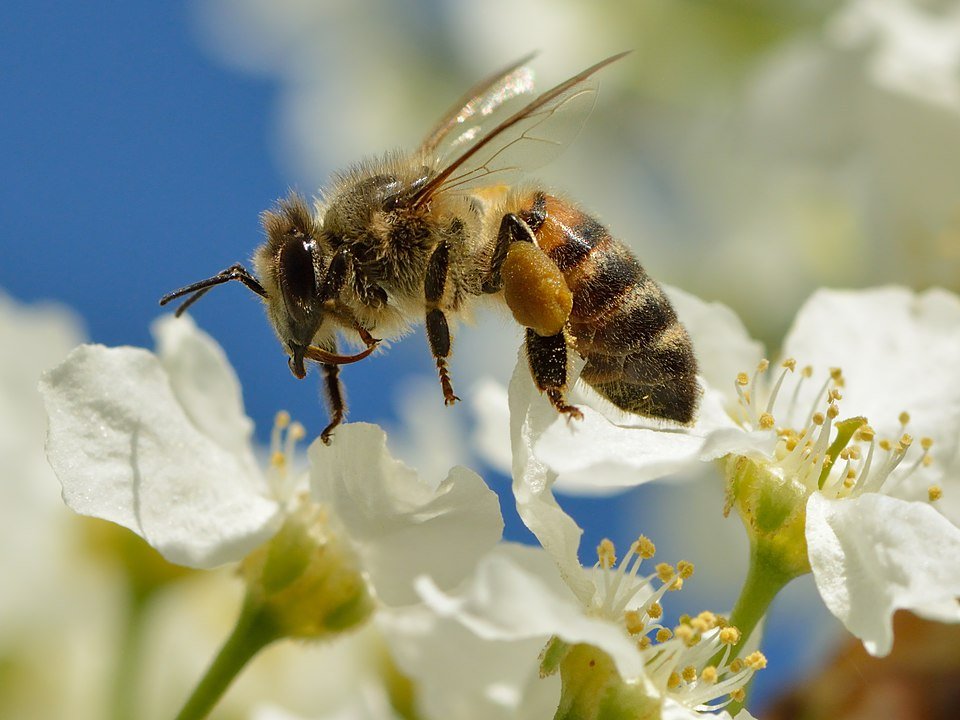

Social media can be depressing, but as Andrea Turpin reminded a while back, having a secret list of “Deeply Good People” can be a helpful way to bring to the fore the encouraging content. And some of the most encouraging content you could see comes from today’s interview guest, whose Twitter feed right now is dominated by pictures of bees, butterflies, and beautiful plants, all of which he cultivates together with his students. He continues to write on these subjects both formally and informally.
So, it is a wonderful honor to welcome David O’Hara to the Arena. He is Professor of Religion, Philosophy, Classics, and Environmental Studies at Augustana University in Sioux Falls, South Dakota, where he directs Augustana’s programs in Environmental Studies and Sustainability. He studies how what we build shows what we believe; the importance of good tea; and the diverse relationships between fish and forests. All of his favorite classrooms are outdoors.
You are interdisciplinarity personified, it seems: you are a scholar of philosophy, the Classics, environmental humanities, and so much more! What is your own educational journey? How did you get into all of these different fields?
I wish I had a simple answer to that! I have had good teachers, and they’ve given me confidence to try new things, I suppose. I studied at Middlebury College, and back then I wanted to be a linguist and a scientist. But when I got to college I found everything interesting, and I didn’t follow a direct path to a career. College was more like a buffet-style meal for me. I studied math and physics, Greek and Spanish and French, poetry and modern dance and music theory. It was all fun. I also spent a year living in Spain in college, and I probably learned more from simply living in Madrid than I did from being in formal classes.
What has been your favorite class to teach over the past year?
I’ve got a couple that I teach repeatedly that I really love. They’re courses in great texts from around the world. You could think of them as courses in the history of ideas, from the ancient Greeks to classical India and China.
This year I also taught a class for our Business Administration department on sustainability and entrepreneurship. The title sounds like corporate jargon, but I had a small class of students from around the world who really want to use their business skills to make positive differences for the world. Being with them each week was a blast.
Oh, and I taught a class on bees. I’m not an entomologist, but I sometimes teach by showing my students how I learn something new. I taught that class last fall, just after my students and I changed the city law to allow educational beekeeping.Then this spring my students and I built an apiary on campus. It is now producing honey, and the bees fertilize the gardens my students and I have built. I think of all of these things — the classes on big ideas, the classes on professional development, and the hands-on work of building things together as being part of a system of learning and of convivial work.
One thing that flies under the radar here is that I also teach a LOT of independent studies. This year I taught 23 independent studies. It’s too many, but they’re all so much fun. One student wanted help translating the earliest known Christian female poet. Others wanted help working on their environmental studies senior theses and senior projects, on a wide range of topics.
I teach abroad often as well. This year I taught a course in Morocco and Spain. I call that course my course on “the religious architecture of water.” I also taught a course on the Golden Age of Athens, in Greece.
Tell us more about the bees! All of your recent social media photos have been all things bees, and I’m getting all the Vergil vibes. What is the story that is unfolding here?
Like so many things I do, this grew out of something my students were passionate about. I founded an Environmental Studies program here, and I also direct our Sustainability program. And I have a lifelong fascination with small lives, like fish and insects. A few years ago some students asked me if I’d help them bring bees to the campus. I had a little grant money, so I dedicated a portion of it to their project, and looked for ways to connect it to other work we have going on, like food sustainability, care for the little things in our ecosystem, and fostering curiosity and wonder.
What are the broader questions that fascinate you in your reading, thinking, and writing? Any particular books that you have read recently that really stood out?
Oh my, do I have a stack of books. It’s a weakness, but I probably buy five new books a week. I love poetry, and science, and math, and language. You probably saw on Twitter the book I just got, A Portable Latin for Gardeners. I love books like that that bring together my diverse interests. I’m also re-reading some older books on higher education right now, and I’m re-reading Thucydides so I can guide some different groups through that classic text.
Much of my reading also ties into my writing, and this summer I am writing a lot. Mostly I am writing about nature and education, but I’m also writing poetry and some fiction. No idea if any of it is worth publishing, but it all helps me to think, and I believe it helps me to be a better teacher as well.